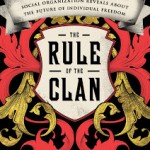In one of my first encounters with Søren Kierkegaard, I distinctively remember hearing the term “Gobbler of Paragraphs.” My professor stated that this term, originally taken from some margin notes to Fear and Trembling, would inform the way our seminar would proceed. He wanted to ensure, as we students were reading Kierkegaard’s Philosophical Fragments, that we were taking time to inwardly digest the assigned material.
As we worked our way through the Fragments, Kierkegaard began to urge us to “take plenty of time to consider the point, for there is no pressing need for haste. By proceeding slowly one may sometimes fail to reach the goal, but by indulging in undue haste one may sometimes be carried past it.” At this point in the Fragments, the text soars to a climax both aesthetically and theologically. Kierkegaard is presenting his Socratic articulation of Christian doctrine. If the project is to truly accomplish what Kierkegaard desires, the reader must “take plenty of time to consider [the] point” and avoid being a “gobbler of paragraphs.”
For Kierkegaard, the goal of “taking our time to consider our point” is to properly engage with the text in self-examination and begin the Socratic “inward” turn. Kierkegaard hearkens back to Plato’s Theaetetus, in which Socrates famously compares himself to a “midwife” and gives an account of the Socratic Theory of Recollection. For Kierkegaard, though, this “midwifery” serves to help the “individual.” He explains,
“Whether in other respects [my writings] have any worth, I shall not decide. If they do have worth, the criterion will not be didactic paragraph-pomposity. If the misfortune of the age is to have forgotten what inwardness is, then one should not write for “paragraph-gobblers,” but existing individualities must be portrayed in their agony when existence is confused for them, which is something different from sitting safely in a corner by the stove and reciting de omnibus dubitandum (everything must be doubted.) Therefore if the production is to be meaningful, it must continually have passion. (Concluding Unscientific Postscript)“
Like Socrates in the Theaetetus, Kierkegaard is arguing that if we are to begin a pursuit of philosophy, we must first turn “inward” and align our lives to the truth. In the Socratic epoch, this would most certainly encompass overcoming one’s attachments to the material world. For Kierkegaard, though, this “inwardness” comes as a way of standing opposed to the “abstracting forces” of modernity and looking at our individual selves before God. Reading, if it is to practice Kierkegaard’s “inwardness,” must be dedicated toward self-examination, or the “looking at oneself through the mirror of the text.”
While much ink has been spilt examining the various theoretical aspects and implications of this, I think Kierkegaard offers some practical wisdom on reading and the pursuit of philosophy. First, Kierkegaard is imploring his readers to read slowly – line by line – and investigate themselves and their standing before God through the use of his text. For Kierkegaard (much like Socrates), the pursuit of philosophy is a deeply personal process. The truth is not found in the abstractions of various academic systems; rather, the truth – one’s individual stance before God – comes through a slow and intensive process of using the text as a tool to investigate ourselves.
Secondly, Kierkegaard, through his writing against the “didactic paragraph-pomposity” of the Modern age, beautifully parodies much of the jargonistic and abstract writing we see in academia today. Writing in the New Yorker, Joshua Rothman notes that academic writing is geared toward a certain “niche” or “audience”— your “departmental colleagues, journal and book editors, and tenure committee.” In writing this way, the academic abstracts philosophy from its personal foundation and joins with the crowd in chanting the modern slogans of the day. Instead, academic writing, if it is to properly serve as a mirror for the reader to undergo “self-examination,” must avoid “didactic paragraph-pomposity” and reflect the author’s own, personal search for truth.
As I mentioned in my last post, a philosophical education requires that we die unto ourselves. With his bidding to “take our time” as we read, Kierkegaard gives us the practical methodology through which we can begin to die unto ourselves through this hermeneutic of “self-examination.”
















